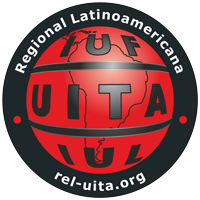 Image: Allan McDonald | Rel UITA
Image: Allan McDonald | Rel UITAThe cargos were intercepted in two police operations conducted in the cities of Livramento and Candiota, in the state of Rio Grande do Sul, near the border with Uruguay, from where they were smuggled, according to statements by one of the individuals arrested.
Brazil is one of the world’s leading consumers of toxic agrochemicals, especially since the introduction of large-scale GMO crops, a process that began in the early 2000s.
From 2010 to 2020, the use of these products, most notably glyphosate, increased by 190 percent.
The particularity of the Bolsonaro government is that it has liberalized the import and use of a huge number of pesticides and herbicides that were not previously authorized in the country, many of which are banned in the United States and Europe due to their high toxicity for humans, wildlife, and the environment.
As of the end of 2020, the administration of this far-right former military officer had liberated some 945 toxic agrochemicals to benefit the multinational corporations that produce them, which have reaped billions of dollars in profits. In the first four months of his government alone, Bolsonaro authorized some 150.
This situation is compounded by what happened in the state of Rio Grande do Sul, where the Legislative Assembly passed Bill No. 260/202, a reform that rolls back the December 1982 Toxic Agrochemicals Act, considered a pioneering legal framework in the protection of the environment and public health in Brazil.
The agribusiness lobby found an ally in the person of state governor Eduardo Leite. This reform eliminates a provision whereby toxic agrochemicals banned in their countries of origin could not be brought into Rio Grande do Sul.
“We are going to turn Rio Grande do Sul into a large toxic waste dump, with products banned in Europe and the United States,” Luciana Genro, state congresswoman elected under the Socialism and Freedom Party (PSOL), warned.
According to the NGO Friends of the Earth, Brazil is the second largest buyer of toxic agrochemicals banned in Europe.
